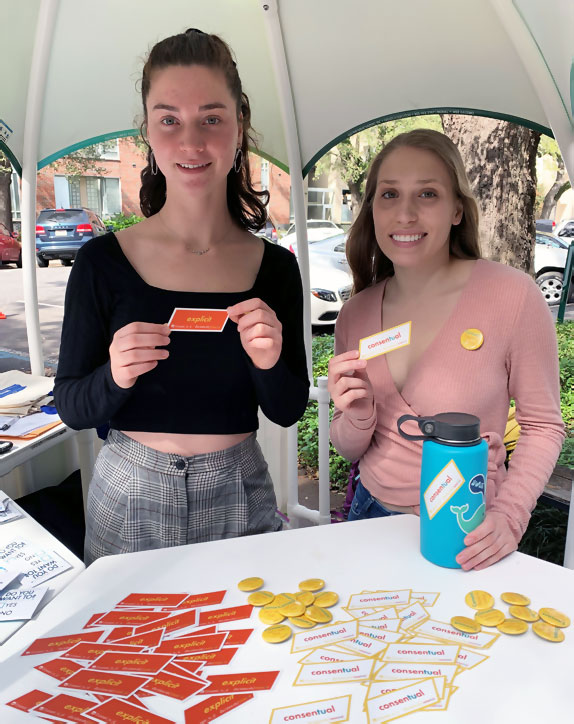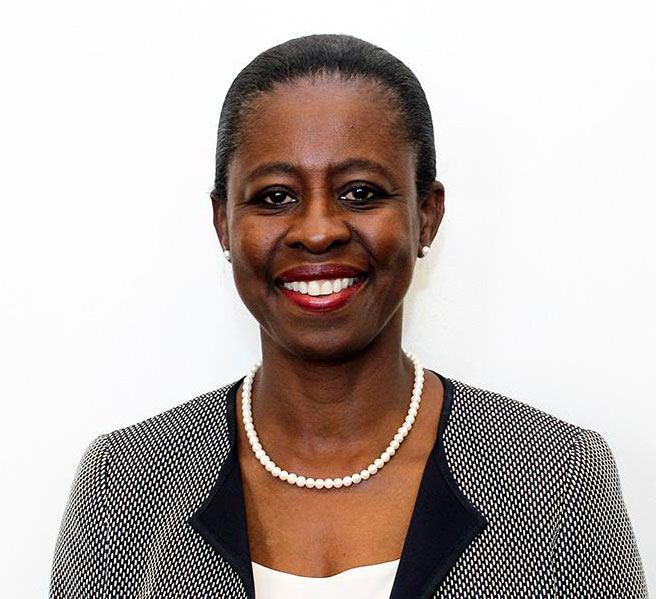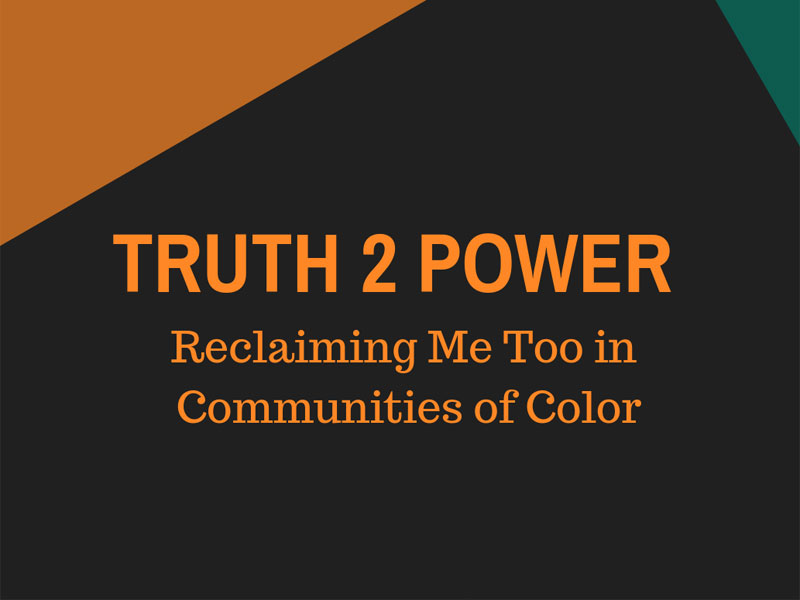Rebranding Consent:
A Q&A with the Students Behind the consentual Campaign
Students arrive at college with varying levels of sex education. For some, sex-ed included little to no information on consent. Two enterprising students, Caroline Slagle and Alex Schoen, recognized this gap in knowledge amongst their peers and sought to create a campaign that would reduce the taboo-factor surrounding sex and inspire more conversations about consent.
Learn more about Alex, Caroline, and the consentual campaign in the Q&A below.
First off, tell us a little about yourselves.

Caroline: My name is Caroline Slagle (she/her/hers), and I am currently a sophomore at Tulane University studying Political Science and English. I am a mentor for Women and Youth Supporting Each Other (WYSE), a member of Students for Education Justice in New Orleans (SEJNO), and a Trip Leader for Outdoor Adventures. My goal is to attend law school for social justice in order to create a more equitable society, but I hope to first make an impact at Tulane!
Alex: My name is Alex Schoen (she/her/hers), and I am a senior, double majoring in Public Health and Gender & Sexuality Studies. Outside of the classroom, I’m a manager at Campus Recreation, Executive Director of Swim 4 Success, and a panelist on the University Student Hearing Panel. After I graduate in May, I plan on entering the public health arena, particularly in the areas of health policy and education.
Your campaign is ultimately about reducing sexual violence on campus. What inspired you to get involved?
Caroline: I knew sexual assault was a problem in the educational setting since high school. I was met with resistance from my alma mater when I tried to address the issue and was only able to pass minor reforms to spread awareness my senior year, which left me disheartened. Attending college, I was fearful of being in a place with nearly 7,000 other undergraduate students who probably came from high schools like mine, or worse. When the Campus Climate Survey was released my freshman year, not only were my fears met, they were surpassed, and I was left both heartbroken and starving to do something.
Thankfully, some of Tulane’s faculty recognized this widespread desire amongst passionate students and created Project IX. I joined this design team that would eventually lead to the creation of consentual.
Alex: Like Caroline, my interest in sexual assault prevention began in high school. The week before I graduated high school, the administrators split the graduating class into two rooms, men and women. My female peers and I listened to one of our female teachers tell a story about a woman who was sexually assaulted while in college. We were encouraged to take a self-defense class. We were told to look around the room, and that 1 in 5 women were sexually assaulted in college. Meanwhile, in the room with the graduating men, a male teacher told the men that college would be “the time of their lives,” and to enjoy every moment. The disparity between the way the men and women of my class were sent off to college absolutely disgusted me. I went to Tulane in 2015 haunted by this meeting, and other experiences I had in high school, and resolved that I would do everything I could to change the campus culture around me to make Tulane a safer place for everyone. The results of the Campus Climate Survey left me reeling, and I immediately joined Project IX, where I met Caroline, and we created the project now known as consentual.
What is Project IX?
Caroline: Project IX is a design team created by Tulane faculty in the wake of the Campus Climate Survey. Within the group, several sub-teams were organized in order to address different aspects of the issue. Alex and I were in the Community and Culture group. Several other projects designed by dedicated students were realized in Project IX. These projects are being aligned with different departments at the university to assist with development. For example, we had the opportunity to work with staff at The Well to help make our ideas come to life.
Where did consentual come from and what is its goal?
Caroline: consentual, simply put, is a brand. When Alex and I were on the design team together, we were brainstorming how to change our campus from a rape culture to a consent culture. What immediately came to mind for me was brands, as they have an extreme influence on culture within our consumerist society. I thought that if we could create a brand that encompassed what Tulane lacked, then it could come to fruition on campus.
We decided to create merchandise using the full definition of consent. The definition we selected was “Asking for and receiving explicit, enthusiastic, ongoing affirmation before and during any action involving another’s personal space. It cannot be coerced. It can be revoked at any time.” We then split up parts of the definition onto stickers, which are an agile form of merchandise. Our goal is for this merchandise to overtake our university in a wave until we are immersed in images of consent. The stickers, which can be stuck to almost any surface, would serve as a conversation starter between people in order to normalize the discussion. Their longevity will sustain interest ensuring that people care about this issue for years beyond the survey’s release. consentual also features gender neutral colors because too often the burden to mitigate sexual assault is placed on women. It is not the responsibility of the victim to avoid being victimized. Also, not all survivors are femme women. We wanted our brand to be inclusive of all.
Hopefully, consentual will become as ubiquitous on campus as Chacos or MacBooks.
Do you think stickers are enough to combat sexual assault on campus?
Caroline: No, we don’t. We didn’t just want to put a sticker on the issue, so we also created both an informational website on the All In page and an Instagram, @consent_tu_al. The Instagram will be used for students to direct message us questions about consent, which will be anonymously featured and answered on our page. We will also conduct polls to assess what areas need more attention and consequently post relevant content.
Ultimately, this effort requires the active participation of students on campus. We recognize that such a format can miss the target audience, but we believe that passionate individuals will sport the merchandise and help spread the word. We only need a handful of people to change the culture because once they get involved, the message will be unignorable. The stickers will be visible everywhere, and hopefully they will inspire a movement that transforms this campus.
Where do you see this campaign going in the future?
Alex: I am so excited for the future of consentual. Like Caroline said, consentual is a dynamic, student-driven project, so the platform will flex to accommodate what students want to learn about consent, relationships, sex, and more. Everyone arrives on campus with varying levels of sex education, and I want consentual to bring everyone to the same level of knowledge regarding sex education. As we move forward with the campaign, I want more students to get involved, share their voices, and help shape our campus culture into one of consent. Finally, I hope that our work with consentual empowers other students to bring their ideas forward. There is so much potential in student-driven solutions to campus sexual assault, and consentual is just one small piece of the puzzle.
The campaign was officially launched on February 14. Where can students continue to find consentual on campus?
Follow us on Instagram @consent_tu_al to stay up to date with all things consentual.
Why Sexual Violence is a Community Issue: Tulane Peer Health Educator, Caitlin McCormick Talks Bystander Intervention

Public Health issues like sexual violence prevention have always been of great interest and importance to me. When I joined the Tulane University Peer Health Education (TUPHE) program my freshman year, I did not expect to become as involved as I have. Over the past three years, I have had the incredible opportunity to work on many health education projects, but the one I feel the strongest about is One Wave, Tulane’s bystander intervention program.
Presented to students by students, the One Wave program has evolved since its first appearance on campus in 2014. Originally facilitated by professional staff, One Wave is now a student-led initiative housed within the TUPHE program. Over the past two years, I have been actively involved in revamping the content, promoting and scheduling the program, and facilitating workshops. To date I have facilitated over 50 One Wave workshops and trained fellow TUPHEs to be the next generation of One Wave facilitators.
I believe bystander intervention is an integral part of sexual violence prevention at Tulane. We need to look out for ourselves and for our peers. Tulane is a community, and I believe we are accountable for helping keep each other safe. When we care enough about our peers to act, or when we de-stigmatize the acts of checking in with peers or calling out behaviors that perpetuate sexual violence, we create a safer and more prosperous environment for us to exist in. One Wave inspires hope for our community, and I think that is what motivates me the most to continue my work with One Wave…The hope that we will be able to come together and collectively begin to address sexual violence as a community issue.
During my time as a TUPHE and One Wave facilitator I have seen a lot of positive outcomes from the program and received vital feedback from many campus groups. It is rewarding to read evaluations and have conversations with students after they attend One Wave workshops and hear that they learned something new or feel more prepared to be an effective active bystander in moments of potential harm.
I hope One Wave continues to grow and future generations of Tulane students benefit from what it teaches. I believe in our community’s potential to take a stand against sexual violence and I am excited to see what our students are capable of!
Caitlin is a senior ‘19, studying Environmental Biology.
Faculty Spotlight: Anastasia Gage, Department of Global Community Health and Behavioral Sciences, researches intimate partner violence

Anastasia Gage, Professor in the Department of Global Community Health and Behavioral Sciences, recently presented her research into intimate partner violence (IPV) in Nigeria to the Tulane community. Prof. Gage and her co-researcher examined overall rates of violence as well as factors that influence women’s risk for relationship violence. They found that 23% of Nigerian women reported experiencing IPV in a 12-month period and that women’s employment status as well as community norms and attitudes were associated with variance in rates of violence.
Prof. Gage noted that IPV is a “public health problem” as well as a “violation of human rights.” She reported that women who experience IPV are at risk for a variety of negative outcomes, from homicide to injury and mental health issues. Prof. Gage noted that men can also be victims of IPV but data on male rates of IPV is lacking in many countries, including in the data set that her research examined.
Prof. Gage utilized data from a national health survey that Nigeria’s government undertook. The survey measured individual women’s experiences with IPV in addition to other individual-level data. The survey also looked at community attitudes regarding IPV and norms around gender roles.
Prof. Gage found that women’s work was one influence on IPV. Violence rates were highest for women who did non-cash work, which includes working for no pay or in exchange for goods and services. Women who did work for cash payment or who were unemployed faced lower rates by comparison. In general, participating in the labor force was associated with a higher risk for IPV.
Community norms also played a role in IPV rates. Physical violence rates were higher in communities where violence against women was more accepted. Prof. Gage highlighted these norms as a target for intervention. She suggested that communities hold conversations about relationship dynamics, gender roles, and IPV.
Prof. Gage also called for men and boys to be more involved in IPV prevention efforts. She stated, “There tends to be a blaming of the victims. [We] expect the victims to make a change so as not to be victimized” rather than focusing on perpetrators. Prof. Gage also advocated for programs that improve men’s capacity to communicate with female partners about their work and how it impacts them and their relationship. Prof. Gage noted “egalitarian relationships doesn’t mean that somebody is going to lose” in the relationship.
Prof. Gage presented her research as part of the Newcomb College Institute’s Fridays at Newcomb lecture series, which features speakers from across academic disciplines. To learn more about Fridays at Newcomb, visit the Newcomb College Institute’s event calendar. Click here to read Prof. Gage’s research article, which was published in the journal Archives of Sexual Behavior.
What We’re Reading
Dr. Berniece Sandler, considered by many to be the godmother of Title IX, recently died. Learn about her fight for gender equity in education in her Washington Post obituary. In the New Yorker, read about another pioneer in the fight for equal access to education in their profile of Alice de Rivera, who helped integrate New York’s single-sex public schools.
Masculinity has been a hot topic recently, with the American Psychological Association (APA) and Gillette spurring the conversation. The APA recently released their first-ever guidelines for mental health treatment for men and boys. The APA reported that decades of psychological research have shown that some aspects of traditional masculinity, commonly referred to as “toxic masculinity,” are harmful to men. The APA urges mental health professionals to help foster healthy and positive masculinities and to challenge gender stereotypes. Meanwhile, Gillette released an ad calling on to men to “be their best” and avoid behaviors commonly associated with toxic masculinity. Although the ad sparked controversy, many men welcomed the call to action. Read reactions from Jonathan Evans at Esquire and Thomas Page McBee at Vox. Research published in the journal Trauma, Violence & Abuse asserts that interventions that challenge the harmful aspects of traditional masculinity can play a role in reducing rates of sexual and gender violence. The paper notes that toxic masculinity is linked to the perpetration of violence against women in heterosexual relationships but programs that promote healthy masculinity have been linked to a reduction in violence perpetration.
Featured Event

Truth 2 Power: Reclaiming Me Too in Communities of Color
March 11, 5:00 p.m. to 7:00 p.m. | Caroline Richardson Building
Join the Office of Multicultural Affairs for dinner and conversation as we analyze and critique the impact the Me too movement has had on communities of color. Recognizing that we are not a monolith, we will work engage in large and small group dialogue to challenge the dominant narratives on relationships and sexual violence. Together we will challenge myths, reclaim our stories, and support one another to promote empowerment and healing. This program will center the most marginalized populations in our community.
Upcoming Events
Louisiana Sexual Assault Student Activist Conference
March 16, 9:00 a.m.- 5:00 p.m. | Xavier University
The 3rd annual conference will include panel discussions, workshops, and networking opportunities for sexual assault activists from across Louisiana. The conference aims to provide a casual, collaborative, and creative environment for students, administrators, faculty, and community members to gather and share their experiences about sexual assault activism on their college campuses. This year’s keynote speaker will be Dalton Dagondon Tiegs from the Idaho Coalition Against Sexual and Domestic Violence. Register here for this free conference.
